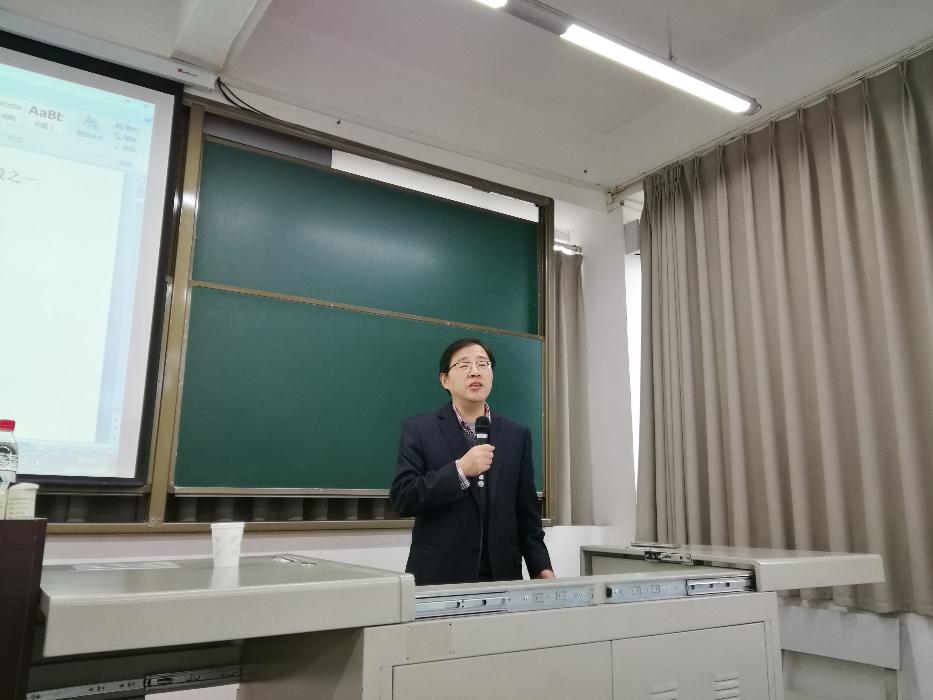On November 18, Professor Zhu Gang from Chinese department of Fudan University was invited to School of Humanities in SWJTU to carry out an academic lecture named“Anecdote and note-book biography”. The lecture was hosted by assistant dean Shen Ruquan, other teachers of the school had attended as well.
At the very beginning of the lecture, professor Zhu introduced two sights for researching history of literature in notes: one is regarding notes as a recording medium, and the other is regarding notes as an expression medium. Note-book biography is different from history biography or epigraph. It is a collection of anecdote of people. Professor Zhu pointed out that the increasing number of notes in Song dynasty was because note had become a kind of self-expression among people in that period. Professor Zhu took the book ofThe Collection of People’s Anecdote in Song Dynasty andWords and Deeds of Famous Ministers from Eight Dynasties as examples to interpret it further. Finally, the conclusion was achieved that traditional biography should be considered as an unfinished state for it just a note enumeration. The advantages of note-book literature were recognized by many famous literators along with its prevalence. Although this type existed an obvious tendency of hunting for novelty on narrating people’s words and deeds, it was more comprehensive and vivid for building images than biography.

